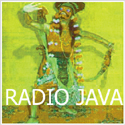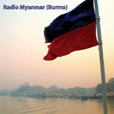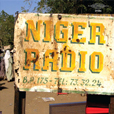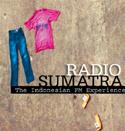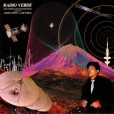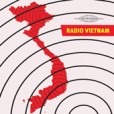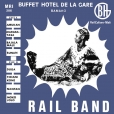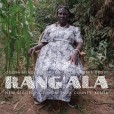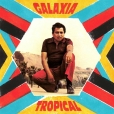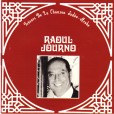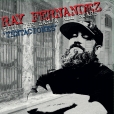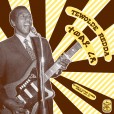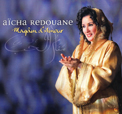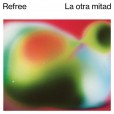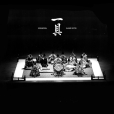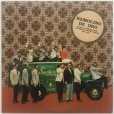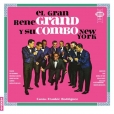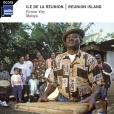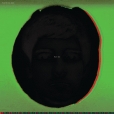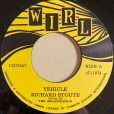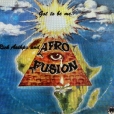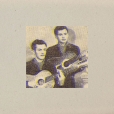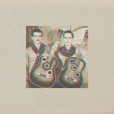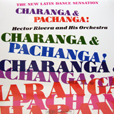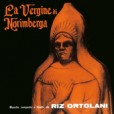Your basket is empty

Dangdut, keroncong, jaipongan, rock, pop, disco, as well as theatre, commercials, DJs, news snippets, and other broadcast bits and pieces.
Assorted strange and beautiful pop, folk, and classical music styles — intercut with bits of broadcast staples like synth ballads, hip-hop jingles, and internationally popular songs re-recorded in Burmese.
Pop, pissed-up sages, shout-outs to the missus, comedy skits intercut with Zarma string-playing, Denke-denke mollo from Burkina Faso, Malian kora, the Koran, Bori folk, Tuareg guitar, bits of BBC news…
Dangdut, melayu, gambus, punk, rap, psych, Islamic folk, you name it; with snatches of news, karaoke call-ins, ads, prayers and US-style station-IDs.
Jamming selection of route-one party-starters, 1979-1985.
Rollicking, cosmic good vibes.
‘One of the greatest, heaviest, and most sought-after guitar records from 1970s West Africa.’
‘Bamako, Mali, 1973: Rail Band, the official orchestra of the Malian state railway, drops their self-titled LP. It’s a relentlessly soulful and hypnotic blend of American funk, jazz horns, and Afro-Cuban music, steeped in centuries-old Mandé tradition.
Led by legendary trumpet and saxman Tidiani Koné and held aloft by the intricate web of Djelimady Tounkara’s reverb-soaked guitar, the Rail Band’s sprawling compositions embody West African storytelling traditions while exulting in the technology and modernity of a newly independent Mali. Vocalists Salif Keita and Mory Kanté are endlessly emotive, oscillating between silky ballads and funk screams. The band’s sound is filled out by layers of percussion, rolling guitars, and melodic horns filtered through the Caribbean.
‘Starting in 1970, the Rail Band played five nights a week, from 2 pm til the early hours, at the Buffet Hotel de la Gare. Their audience was an international array of businessmen, young partiers, and people of the Bamako night. The band was incredibly versatile, switching genres, rhythms, and styles to meet their crowd. It was a volatile mix, which would fall apart soon after these recordings were made. Here it is, one of the greatest bands to ever exist, at the height of its creative powers.’
Rang'ala
New Recordings From Siaya County, Kenya: Ogoya Nengo And The Dodo Women's Group
Honest Jon's Records
Open-hearted, fresh, lovely, bumptious recordings of women’s singing, from Rang’ala village in southwest Kenya. ‘Dodo’ is a type of traditional Luo music mostly used for entertainment at weddings, drinking parties and wrestling festivals. Songs in praise of the happy couple, the hardest drinkers and the best wrestlers.
Try the magical fourth song, Arum — about barking like a hornbill.
‘Fourteen tracks of irresistible psych-spiked cumbia and Link Wray guitar from the edge of the Peruvian jungle’ (Uncut).
‘Rambunctious Peruvian Cumbia Amazonica … The unpredictable and unrestrained sound that locals lovingly called ‘llullampeo’ can be heard in all its glory in Gitanita’ (Sounds And Colours).
A follower of the celebrated Cheikh El Afrite, young Raoul taught himself oud, and sang solo for his local synagogue choir — also drawing inspiration from the munchid singing of Sulamia, the largest Sufi brotherhood in Tunisia. In 1934, aged twenty-three, his first album was a smash. Maghreb audiences revered him for his fidelity to his own national traditions, undistracted by more fashionable Lebanese and Egyptian styles.
Ya Samra hymns a prettily-tattooed, blushing, date-flavoured brunette; in Aala Khadek the dirty rascal fancies himself to be a bee, closing in on the delicious nectar secreted in the beauty spot of his beloved.
Drawn from his six monumental singles for the Philips, Amha and Yared labels between 1970-73, revolutionising traditional Eritrean music via the innovations of amplified kirar, electric guitar and horns. Thick, deep declarations and considerations of love over a mixture of sombre and joyous tunes (with the hand-clapped beat often shifting into double-time near the end).
Co-released with Mitmitta Musika in Addis Ababa; handsomely presented in a tip-on sleeve, with extensive liner notes, translations and exclusive photos.
Fab.
The magnificent Moroccan singer in settings of eighth-century poems by the Sufi saint Rabi’a Al-‘Adawiyya.
‘Japanese classical music and dance, traditionally performed by families of musicians linked to the ancient Imperial court, and later passed down in Buddhist temple ceremonies and Shinto shrines, Gagaku is the oldest of the Japanese performing arts, with a history more than a thousand years old. Founder and director of the Reigakusha ensemble, Shiba Sukeyasu descends from the Koma clan, dating back to the end of the 10th century. The recordings partly reflect repertoires borrowed from Chinese music between the 5th and 9th centuries.
‘The eternal breath of the flutes (ryuteki and hichiriki) creates a sort of suspension of time, together with the hypnotic and hallucinatory atmosphere of the mouth organs (shō). The meditative tone of the string instruments (bika and koto) that punctuate the voids and silences is impressive, as is the enigmatic percussion section, with the tolling of the gong (shōko) and the calibrated beats of the drums (taiko and kakko).’
Tear-up cumbias from this mighty label’s treasure-rooms, handsomely sleeved.
‘This third solo album is a deep, widescreen exploration in classic Brazilian song with all the subtlety and delicacy you’d expect from the pioneers of Musica Popular Brasileira, coupled with a thoroughly 21st century sensibility and sonic innovativeness. Layers of intricate instrumentation and arrangement make for spellbound, excavatory listening.
‘Recorded following Gomes’ move from Rio to Lisbon, the album is imbued with a sense of unease and cultural dislocation. A number of songs based on the Samba Ostinato explicitly celebrate Brazil’s musical heritage and culture.
‘Led by Gomes’ gentle and dreamy voice, the music is often reminiscent of mighty trailblazers like Caetano Veloso, João Bosco, or Edu Lobo, though it takes unexpected lines of flight into more experimental territory. An element of drone underpinning the whole album takes full charge on Fllux and Transição; and the finale is molten, raging hardcore.
‘A sun-drenched, balmy dream from start to finish.’
Taut horror soundtrack from 1963: dramatically orchestral, with jazzy intervals.
